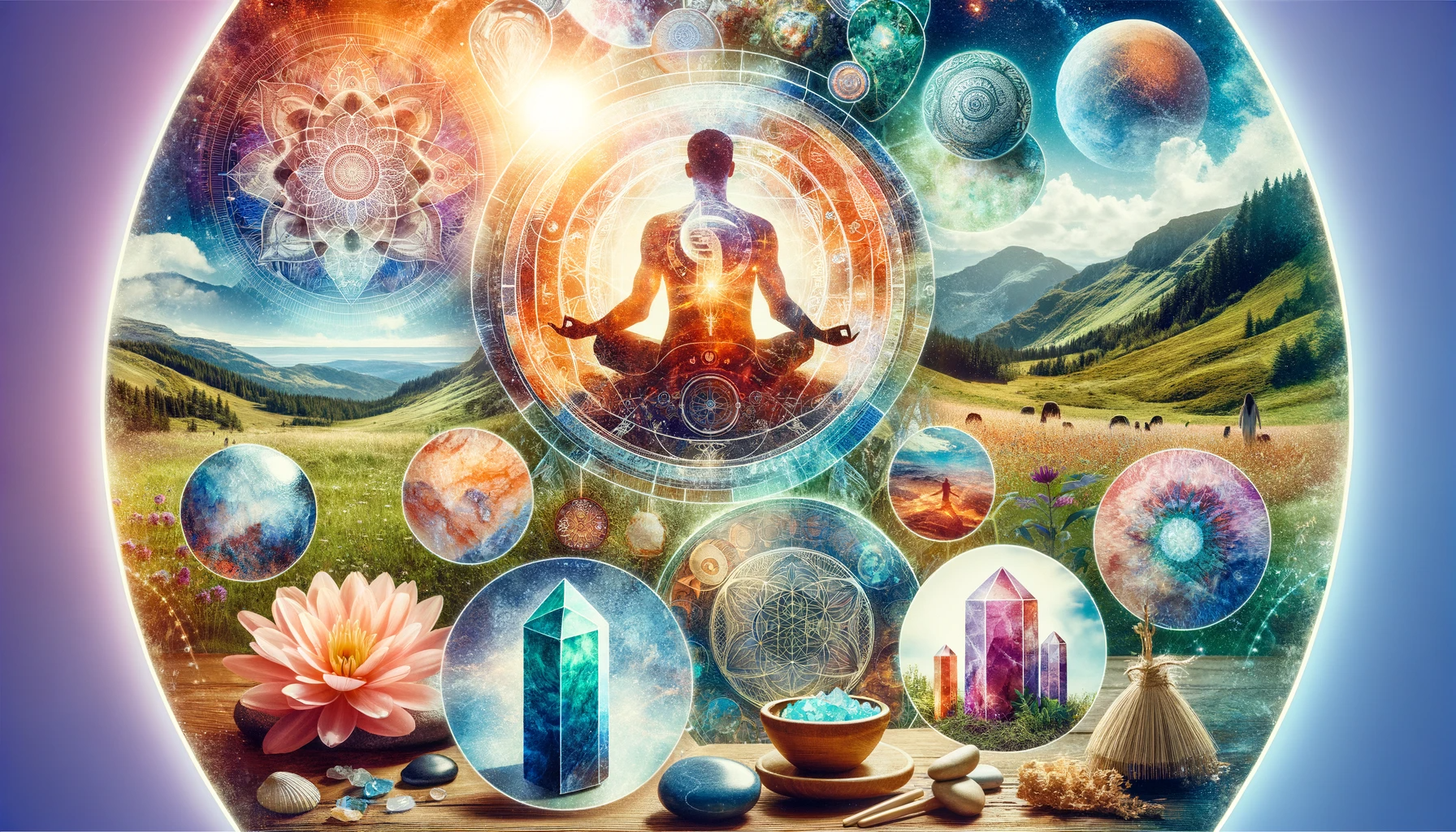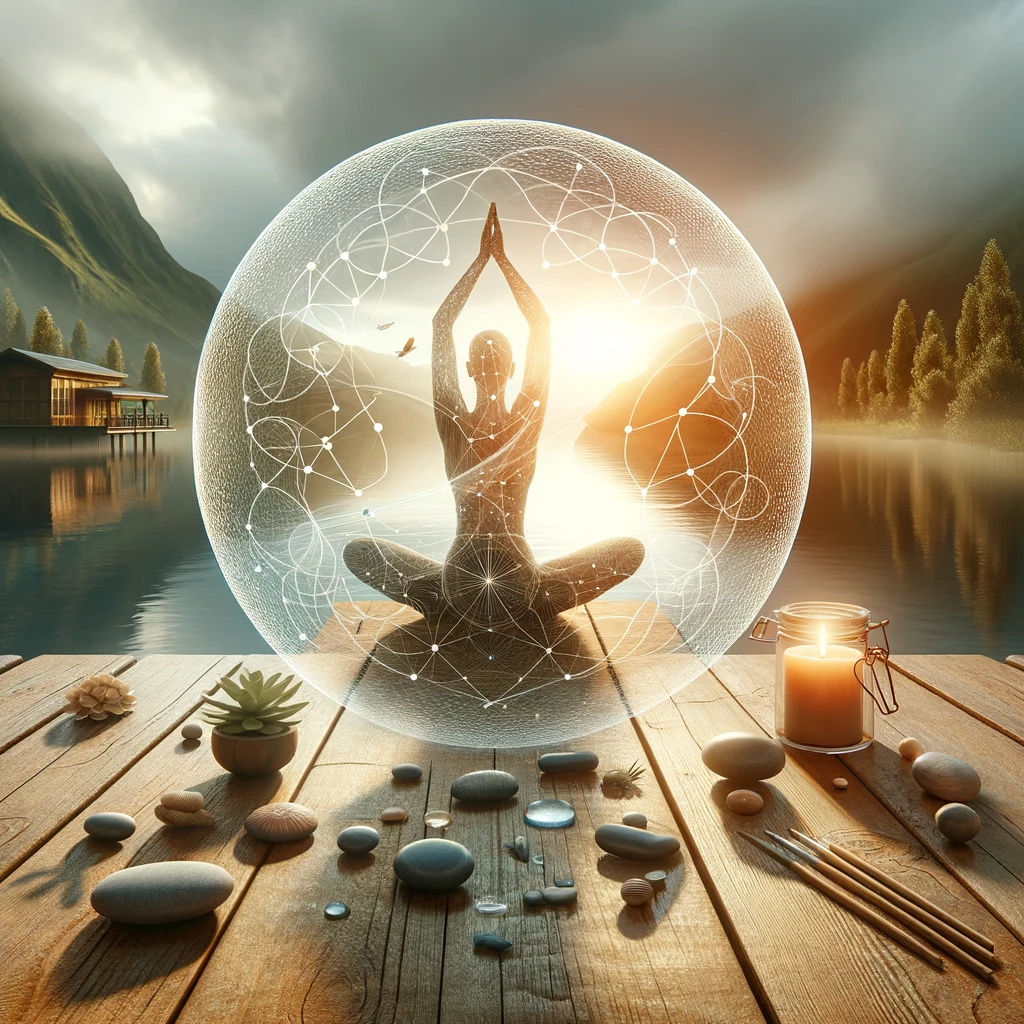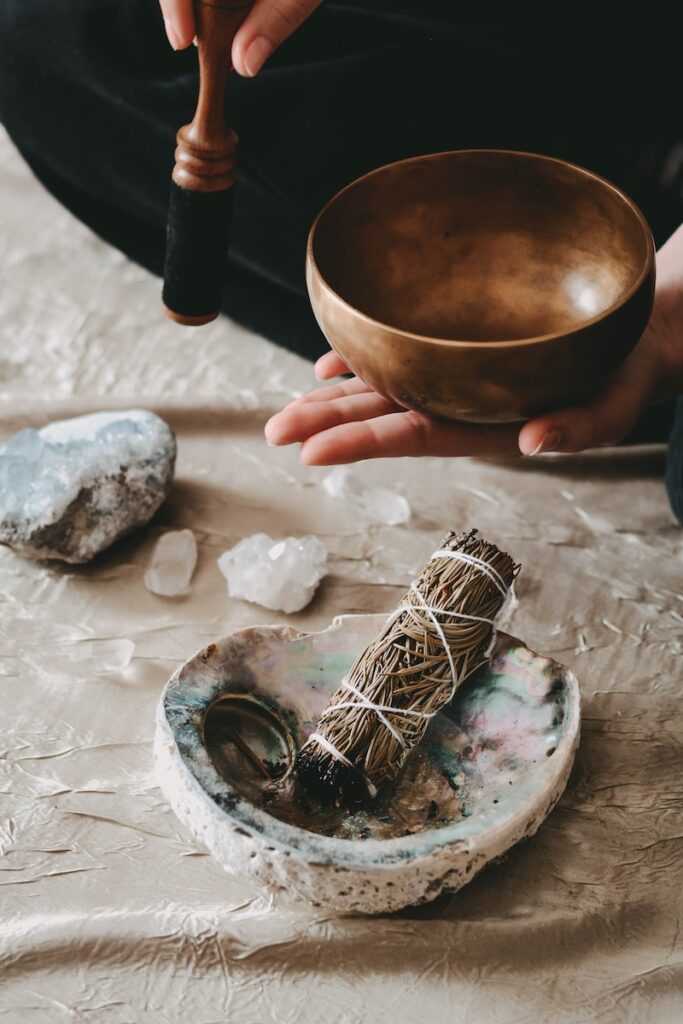Embracing Holistic Therapy: A Journey to Wellness

Key Takeaways:
| Aspect | Key Points |
|---|---|
| Definition | Holistic therapy focuses on healing the whole person: body, mind, and spirit |
| Benefits | Enhances overall well-being, reduces stress, and promotes a balanced lifestyle |
| Techniques | Incorporates a range of practices from crystal healing to astral projection |
| Personal Growth | Facilitates self-discovery, spiritual development, and personal empowerment |
| Resources | Access to comprehensive guides and reviews on related practices |
Holistic therapy, a multifaceted approach to wellness, has gained immense popularity in recent years. This therapy goes beyond treating symptoms, aiming to heal the individual’s body, mind, and spirit in unison. In an era where stress and hectic lifestyles are common, holistic therapy offers a refreshing path to balance and well-being.
Unveiling the Power of Holistic Healing
At the core of holistic therapy is the belief that every aspect of a person’s life is interconnected. It’s not just about curing ailments but nurturing overall wellness. This philosophy aligns perfectly with the ethos of secretschoolofwisdom.com, a platform dedicated to unveiling the mysteries and power of various spiritual practices.
Techniques and Practices
Holistic therapy encompasses an array of practices, each with its unique benefits. For instance, crystal healing, explored in-depth in our “Beginner’s Guide to Healing Crystals”, utilizes the natural energies of crystals to harmonize the body and mind. Similarly, astral projection, a profound journey of self-discovery, can be understood through resources like “Astral Travel: The Royal Road to Self-Knowledge and Healing”. These practices are not just about physical wellness but also about exploring deeper spiritual and mental dimensions.

Integrating Holistic Therapy into Daily Life
Incorporating holistic practices into daily routines can lead to profound changes. Practices like meditation, yoga, and mindfulness can easily be woven into everyday life, offering a respite from the chaos of the modern world. For those interested in exploring these techniques further, the article “Astral Projection Techniques” provides actionable insights.
The Science Behind Holistic Therapy
While often rooted in ancient wisdom, many holistic practices are now being validated by modern science. For instance, the benefits of meditation and mindfulness in reducing stress and improving mental health are widely recognized. To delve deeper into the scientific underpinnings of these practices, the “Astrology Guidebook: Illuminating Ancient Star Wisdom” offers a blend of historical context and contemporary understanding.
In conclusion, holistic therapy is more than just a set of practices; it’s a way of life that fosters balance, wellness, and harmony. By integrating these practices into our daily lives, we embark on a transformative journey towards a more fulfilled and balanced existence.
Personal Transformation Through Holistic Therapy
Holistic therapy isn’t just about physical wellness; it’s a catalyst for profound personal transformation. Engaging in practices like astral projection and crystal healing can lead to greater self-awareness and spiritual growth. For beginners eager to explore astral projection, the guide “Astral Projection for Beginners” offers an excellent starting point. Similarly, those interested in understanding the power of crystals can find valuable insights in the “Crystal Guide”.
The Role of Ancient Wisdom
Holistic therapy often draws from the well of ancient knowledge, offering timeless insights into health and well-being. This connection to the past is not just about practices but also about understanding the philosophies behind them. The website’s section on “Ancient Illuminati Review” sheds light on some of these enduring wisdom traditions and their relevance in modern holistic practices.
Balancing Chakras for Holistic Health
A key component of holistic therapy is the understanding and balancing of chakras. Chakras, according to ancient traditions, are energy centers within the body that influence our physical, emotional, and spiritual health. Techniques for chakra balancing can range from meditation to the use of specific crystals. The insightful article “Chakra Wealth DNA” dives deeper into how chakra balancing can lead to improved well-being and abundance.
Exploring Divination as a Tool for Self-Discovery
Holistic therapy also encompasses the practice of divination, which can be a powerful tool for self-discovery and decision-making. From tarot reading to rune casting, these practices offer insights into the subconscious mind and the universe at large. For those interested in exploring divination tools, “Best Tarot Sets” and “Rune Sets Review” are excellent resources for beginners.
Holistic Therapy in the Digital Age
In today’s digital age, holistic therapy has embraced technology, offering new ways to engage with ancient practices. Online resources, digital guides, and virtual communities have made these practices more accessible than ever. For those looking to integrate these practices into their digital lifestyle, the article “Unlock the Potential of Moon Reading” provides a unique blend of ancient wisdom and modern technology.
In summary, holistic therapy offers a rich tapestry of practices and philosophies for improving health and well-being. Whether you’re drawn to ancient wisdom or modern interpretations, there’s a pathway in holistic therapy that can lead to a more balanced and fulfilling life.

Enhancing Lifestyle with Holistic Approaches
Adopting holistic therapy practices can significantly enhance one’s lifestyle. By focusing on the whole person—body, mind, and spirit—these therapies promote a sense of harmony and balance. Practices such as yoga, meditation, and the use of healing crystals not only improve physical health but also contribute to mental clarity and emotional stability. The website’s “Healing Crystals for Beginners” guide offers a comprehensive introduction to using crystals for enhancing well-being.
The Impact of Environment on Holistic Health
Our environment plays a crucial role in our overall health and well-being. Holistic therapy emphasizes the importance of creating a space that promotes healing and tranquility. This can involve setting up a meditation space, using aromatherapy, or even arranging your living space to encourage positive energy flow. For more detailed guidance, the article on “Best Sage Kits” provides valuable insights into using sage for cleansing and creating a harmonious environment.
Nutrition and Holistic Therapy
Holistic therapy also extends to the realm of nutrition, acknowledging that what we eat significantly impacts our health. Incorporating a balanced diet, rich in natural and unprocessed foods, is a key element of holistic health. Websites like secretschoolofwisdom.com offer various resources on nutrition and its role in holistic therapy, guiding readers towards healthier eating habits.
The Community Aspect of Holistic Practices
Holistic therapy is not just an individual journey; it often involves community and shared experiences. Engaging with others who are on a similar path can provide support, inspiration, and a sense of belonging. Online forums, workshops, and group meditation sessions are excellent ways to connect with a holistic community. Resources like “Astral Projection Techniques” not only offer individual guidance but also tips on how to engage with others on this journey.
Overcoming Challenges with Holistic Therapy
While holistic therapy offers many benefits, it’s important to acknowledge and address the challenges that may arise. This could include finding the right practice that resonates with you, integrating these practices into a busy lifestyle, or dealing with skepticism from those around you. The website provides various resources, like the “Astral Projection vs Lucid Dreaming” article, to help navigate these challenges.
In conclusion, holistic therapy is a dynamic and comprehensive approach to wellness that can profoundly impact all areas of life. By embracing these practices, individuals can embark on a transformative journey towards a more balanced, healthier, and fulfilled existence.

Integrating Modern Technology with Holistic Practices
In the 21st century, the integration of technology with holistic practices has opened up new avenues for personal growth and healing. From apps that guide meditation sessions to online courses on spiritual practices, technology is making holistic therapy more accessible and versatile. For instance, the “Sonic Key Transformation” review explores how sound technology can be used in personal transformation.
The Importance of Continuous Learning in Holistic Therapy
Holistic therapy is an ever-evolving field, with continuous learning playing a key role in its practice. Engaging with the latest research, exploring new techniques, and staying informed about advancements in the field are crucial for anyone interested in holistic practices. Websites like secretschoolofwisdom.com, with its diverse range of guides and reviews, serve as valuable resources for ongoing education and exploration.
Customizing Holistic Therapy to Individual Needs
One of the most appealing aspects of holistic therapy is its adaptability to individual needs and preferences. Whether it’s choosing the right type of meditation, selecting crystals that resonate with you, or exploring different divination tools, holistic therapy offers a wide range of options. For those interested in customizing their holistic practices, resources like the “Best Tarot Sets” review can provide valuable guidance.
The Therapeutic Power of Nature in Holistic Practices
Nature plays a significant role in many holistic therapies. Engaging with the natural world—be it through forest bathing, gardening, or simply spending time outdoors—can have profound healing effects. The connection to nature is not only rejuvenating but also helps in grounding and aligning oneself with the natural rhythms of life. The “Spiritual Sticks” article offers insights into how natural elements are used in various spiritual practices.
Future Directions of Holistic Therapy
As holistic therapy continues to grow in popularity, its future looks promising. With increasing scientific validation, greater integration with conventional medicine, and the continuous evolution of practices, holistic therapy is poised to play an even more significant role in health and wellness. For those interested in the future trends and directions of holistic therapy, the website’s comprehensive resources provide a window into what’s next in this fascinating field.
In conclusion, holistic therapy offers a rich and diverse approach to wellness, blending ancient wisdom with modern understanding. Its adaptability, focus on the whole person, and integration with technology make it a compelling choice for anyone seeking a more balanced and fulfilling life.
Navigating the Myths and Misconceptions
Despite its growing popularity, holistic therapy is often surrounded by myths and misconceptions. It’s important to dispel these to understand the true nature and potential of holistic practices. Myths such as “holistic therapies are unscientific” or “they can replace conventional medicine” need to be addressed with factual information. Articles like “Master Mentalism Secrets” help in debunking common myths and provide a clearer picture of what holistic therapy truly entails.
Holistic Therapy for Different Life Stages
Holistic therapy is versatile and beneficial for people at different stages of life—from children to the elderly. Tailoring practices to suit specific age groups can enhance their effectiveness and relevance. For instance, gentle yoga and meditation can be highly beneficial for seniors, while dynamic activities like dance therapy might be more suitable for younger individuals. Resources such as “Spiritual Salt” offer insights into how different elements can be used across various life stages.
The Role of Holistic Therapy in Mental Health
In recent years, the role of holistic therapy in supporting mental health has been increasingly recognized. Techniques like mindfulness, meditation, and even certain forms of divination can provide significant benefits in managing stress, anxiety, and other mental health issues. The exploration of these techniques, as seen in resources like “Lucid Dreaming Review”, underscores the potential of holistic therapy in complementing traditional mental health treatments.
Sustainable Practices in Holistic Therapy
Sustainability is another important aspect of holistic therapy. Using resources responsibly, choosing ethically sourced materials, and respecting the environment are key components. This approach not only aligns with the principles of holistic health but also contributes to the well-being of the planet. The article on “Best Incense Review” provides information on selecting sustainable and ethically produced products for holistic practices.
Conclusion
Holistic therapy offers a comprehensive approach to wellness, addressing physical, mental, emotional, and spiritual health. By combining ancient wisdom with modern insights, it provides a balanced and effective path to overall well-being. With its adaptability to individual needs and the evolving landscape of health and wellness, holistic therapy continues to offer promising avenues for personal growth and healing.

Frequently Asked Questions About Holistic Therapy
- What is Holistic Therapy? Holistic therapy is an approach to wellness that focuses on healing the whole person, including their body, mind, and spirit. It incorporates a range of practices like meditation, yoga, crystal healing, and astral projection.
- How Does Holistic Therapy Benefit Overall Well-being? Holistic therapy enhances overall well-being by reducing stress, promoting a balanced lifestyle, and nurturing both mental and spiritual health alongside physical wellness.
- Can Holistic Therapy Replace Conventional Medicine? While holistic therapy offers many health benefits, it’s important to see it as a complement to conventional medicine, not a replacement. It works best when integrated with traditional healthcare approaches.
- Are There Scientific Studies Supporting Holistic Therapy? Yes, many holistic practices, such as meditation and mindfulness, have been studied and supported by scientific research, particularly in their effectiveness in reducing stress and improving mental health.
- How Can I Integrate Holistic Therapy into My Daily Life? Integrating holistic therapy into daily life can involve practices like regular meditation, using healing crystals, adopting a balanced diet, and participating in community activities related to holistic practices.
- Is Holistic Therapy Suitable for All Ages? Absolutely. Holistic therapy can be tailored to suit individuals of all ages, with specific practices more suitable for certain age groups, like gentle yoga for seniors or more dynamic activities for younger individuals.
- How Do I Start with Holistic Therapy? Starting with holistic therapy can be as simple as exploring beginner-friendly practices like meditation or yoga. Websites like secretschoolofwisdom.com offer various guides and reviews to help beginners.
- What Role Does Nature Play in Holistic Therapy? Nature plays a significant role in holistic therapy, with practices like forest bathing or using natural elements like crystals and sage believed to have healing effects.
- Can Holistic Therapy Help with Mental Health? Yes, holistic therapy can be a valuable tool in managing stress, anxiety, and other mental health issues, complementing traditional mental health treatments.
- Where Can I Find Reliable Information on Holistic Therapy? Reliable information on holistic therapy can be found on websites like secretschoolofwisdom.com, which offers a wide range of articles, guides, and reviews on various holistic practices.
